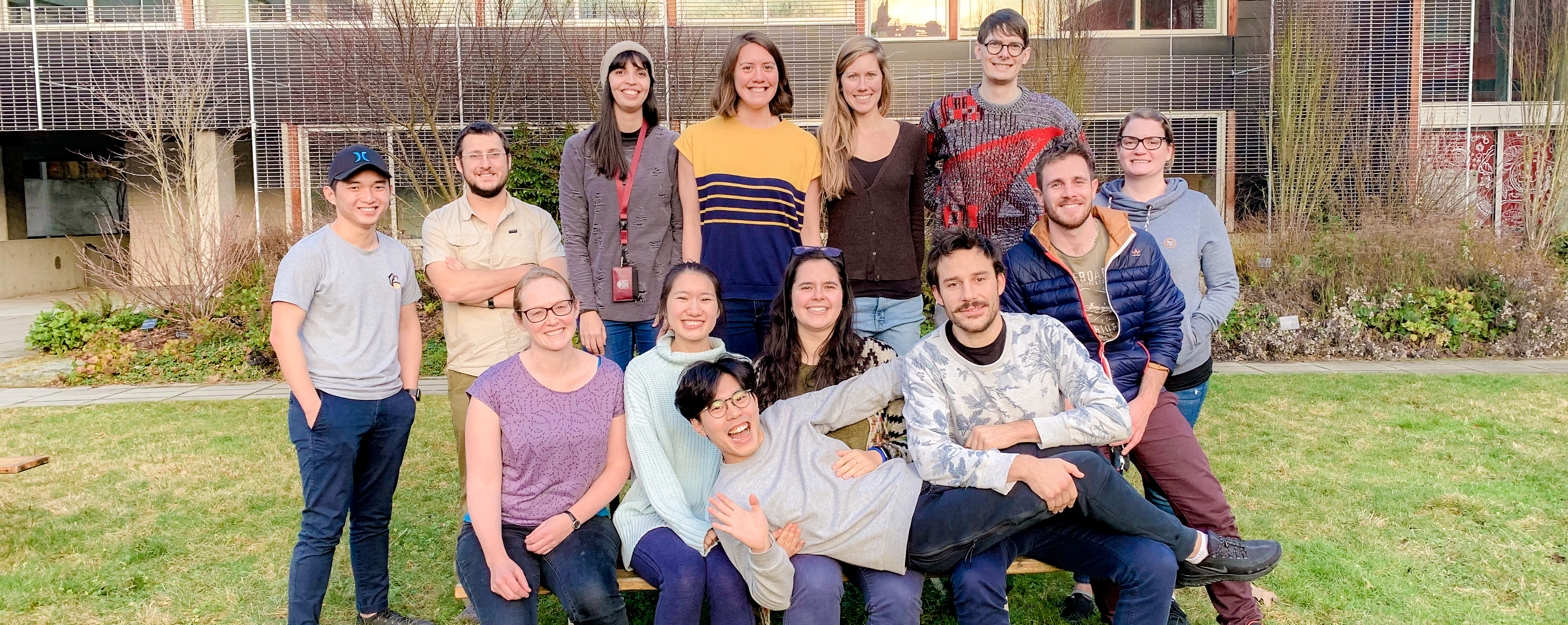
Thank you for your interest in joining the Parfrey research group!
In most years I accept one or two new graduate students into my lab. My lab uses field surveys, lab experiments, and data mining to study diverse aspects of the ecology and evolution of host-associated microbes, particularly in the near shore environment. Computational and quantitative skills (including phylogenetics) are highly desired as most of our studies involve analysis of large datasets. Students will have the opportunity to work in the BC Central Coast region at the Hakai research station. UBC provides a stimulating environment with many groups investigating diverse aspects of microbiology, protistology, biodiversity, ecology, and evolution. Students coming in through the Zoology or Botany departments will be embedded within the vibrant community of the Biodiversity Research Centre. Vancouver provides many opportunities to enjoy the mountains, water, and city life.
Guidelines for applying through the Department of Botany and the Department of Zoology can be found here and here.
Currently not accepting Graduate Students for Fall 2024.
I enjoy working with undergraduate students and there are generally 3-4 undergraduates working with me or students and postdocs in the lab at any given time. There are several avenues to come into the lab as an undergraduate: directed studies or honors thesis for UBC credit, work learn positions, co-op positions, or summer USRA positions when funding is available. I strongly encourage students to volunteer in the lab before pursuing any of these options to make sure the lab fits into your interests. I am particularly interested in bringing in undergraduates with quantitative and computational skills because much of our work involves analysis of large datasets. Please send me an email with a statement of your research interests and why you are interested in joining the lab. Attach your CV and unofficial transcripts.
Currently seeking applicants for Sentinels of Change Alliance postdoctoral fellowship!
Biodiversity change in the Salish Sea is a major ecological concern. The need to understand these changes, and their causes, is a primary research objective so that knowledge can be mobilized to inform conservation and policy actions in the region. The Sentinels of Change Alliance brings together Hakai Institute scientists, university scientists and local communities to deepen our understanding of Salish Sea biodiversity change at an unprecedented scale and resolution. The goals are to implement standard observation systems for biodiversity across a range of taxa, to conduct experiments to test hypotheses about the causes of diversity change, and to integrate knowledge from observation and experimental systems into a sustainable ongoing biodiversity observation system for the Salish Sea.
The Sentinels of Change Alliance project will train postdoctoral researchers and technicians to implement a series of globally recognized biodiversity monitoring programs (e.g. Sentinels light traps, ARMS, MARINe Biodiversity monitoring and other systematic observation and experimental systems). Project personnel will use state of the art data science and statistical approaches in the context of emerging frameworks for detecting and attributing biodiversity change. Sentinel Postdoctoral researchers will be co-advised by UBC professors and Hakai scientists to develop projects that synthesize the information coming in from the monitoring program, as well as provide complementary theory development, mechanistic experiments and monitoring.
For more information, please see: Parfrey_Postdoc_ads_Sentinels Alliance Overview.docx.
Review of applications will begin on January 15, 2024 and we hope to fill the position for a start date of May 1, 2024 (negotiable). The position is for two years, with a performance review after one year.
Please contact Laura Parfrey with questions (Lwparfrey@botany.ubc.ca). To apply, please send a cover letter, CV, the two reference letters, and sample research publications to Kyoko Horiguchi (kyoko.horiguchi@ubc.ca). Your cover letter should address your motivation to excel in this project, and the particular skills and experience you can bring to the work.